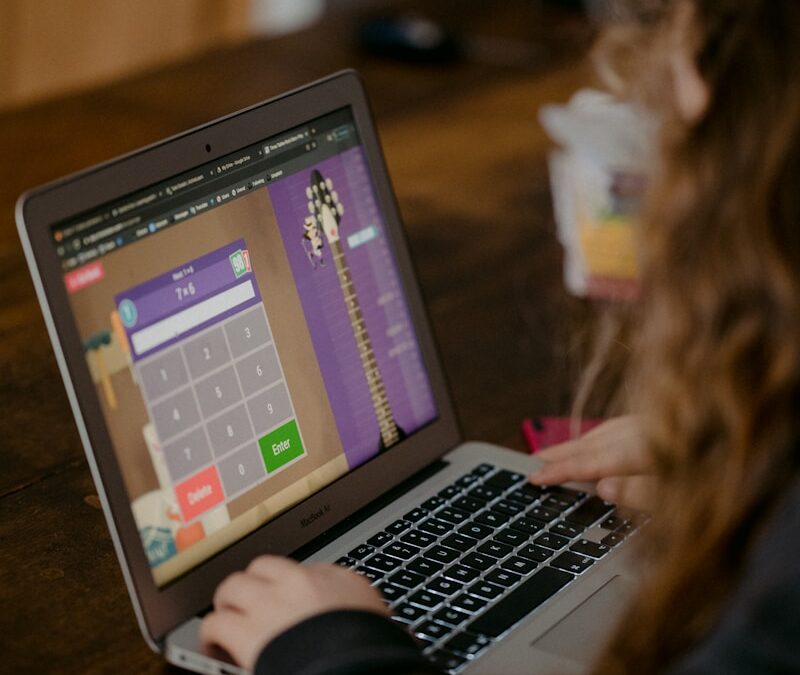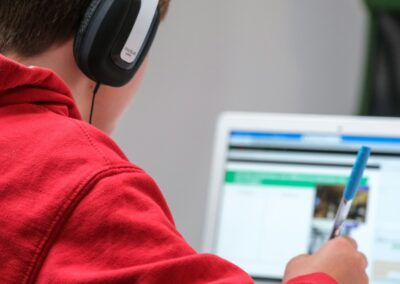Transforming Education Through the Metaverse
The Rise of Virtual Learning Environments
The evolution of metaverse education is reshaping the educational landscape, introducing innovative business models centered around virtual goods and services. As traditional education systems face challenges in adapting to rapidly changing technological advancements, the metaverse offers a transformative solution. By leveraging virtual learning environments, educators can create immersive and interactive experiences that enhance student engagement and learning outcomes.
In regions like Saudi Arabia and the UAE, where there is a strong emphasis on digital transformation, the adoption of metaverse education is gaining traction. Cities such as Riyadh and Dubai are at the forefront of implementing advanced technologies to modernize their education systems. The integration of artificial intelligence, blockchain, and generative AI in education not only provides personalized learning experiences but also facilitates the management and verification of academic credentials.
Virtual learning environments enable students to participate in interactive simulations, virtual field trips, and collaborative projects, all within a digital space. These immersive experiences foster a deeper understanding of complex concepts and promote critical thinking skills. Moreover, the metaverse allows for real-time feedback and adaptive learning pathways, ensuring that each student receives tailored support to meet their individual needs.
Economic Opportunities in the Metaverse Education Ecosystem
The metaverse education ecosystem presents significant economic opportunities by introducing new business models centered around virtual goods and services. In this evolving landscape, virtual assets such as digital textbooks, learning modules, and interactive tools become valuable commodities. Educational institutions and tech companies can monetize these virtual assets through subscriptions, one-time purchases, or licensing agreements.
In Saudi Arabia and the UAE, where innovation and entrepreneurship are highly encouraged, the development of virtual goods and services in education aligns with national economic goals. By creating and distributing high-quality educational content, local businesses can tap into a growing market and drive economic growth. Additionally, the export of virtual educational products can position these regions as leaders in the global edtech industry.
Furthermore, the metaverse facilitates the emergence of new revenue streams for educators and content creators. By offering virtual workshops, seminars, and coaching sessions, professionals can reach a global audience and generate income. This democratization of education not only benefits learners but also empowers educators to diversify their income sources and achieve financial stability.
The Role of Virtual Goods and Services in the Metaverse Economy
Virtual goods and services play a central role in the metaverse economy, driving transactions and creating value for users. In the context of education, these virtual assets encompass a wide range of digital products, from customizable avatars and virtual classrooms to blockchain-based certification systems. As the demand for these assets grows, so does the potential for economic innovation and expansion.
In the UAE and Saudi Arabia, where there is a strong focus on developing knowledge-based economies, the integration of virtual goods and services in education supports broader economic objectives. By fostering a culture of innovation and digital literacy, these regions can cultivate a workforce equipped with the skills needed to thrive in the digital age. The economic impact of the metaverse extends beyond education, influencing sectors such as finance, healthcare, and entertainment.
The use of blockchain technology in metaverse education ensures the security and transparency of transactions involving virtual goods and services. This decentralized approach mitigates the risk of fraud and enhances trust among users. Additionally, the implementation of smart contracts automates the execution of agreements, reducing administrative overhead and streamlining operations.
Future Prospects and Challenges of Metaverse Education
Advancing Technology and Educational Practices
The future of metaverse education is promising, with continuous advancements in technology driving innovation in educational practices. As artificial intelligence and generative AI technologies evolve, they will enable more sophisticated and personalized learning experiences. These advancements will allow educators to create adaptive learning environments that cater to the diverse needs of students, ensuring that no learner is left behind.
In Saudi Arabia and the UAE, the commitment to technological advancement and education reform provides a solid foundation for the growth of metaverse education. By investing in cutting-edge technologies and fostering public-private partnerships, these regions can accelerate the adoption of metaverse learning platforms and establish themselves as pioneers in digital education. The integration of AI-powered analytics and machine learning algorithms will further enhance the efficacy of educational interventions and support data-driven decision-making.
Moreover, the metaverse offers unique opportunities for experiential learning and skill development. Virtual internships, apprenticeships, and project-based learning initiatives provide students with practical experience and real-world insights. By bridging the gap between theoretical knowledge and practical application, metaverse education prepares students for successful careers in an increasingly digital and interconnected world.
Addressing Challenges and Ensuring Inclusivity
Despite the numerous benefits of metaverse education, several challenges must be addressed to ensure its successful implementation. One of the primary concerns is the digital divide, which can limit access to metaverse learning platforms for students in underserved communities. To mitigate this issue, policymakers and educators must prioritize equitable access to technology and internet connectivity, ensuring that all students have the opportunity to benefit from virtual learning environments.
In the UAE and Saudi Arabia, efforts to bridge the digital divide include initiatives to expand broadband infrastructure and provide affordable devices to students. By addressing these disparities, these regions can create inclusive educational ecosystems that support diverse learners. Additionally, the development of user-friendly interfaces and accessible content is crucial for accommodating students with varying levels of digital literacy and different learning needs.
Another challenge is the need for robust data privacy and security measures to protect students’ personal information in the metaverse. Educators and developers must implement comprehensive cybersecurity protocols and comply with relevant regulations to safeguard sensitive data. By fostering a culture of digital responsibility and awareness, stakeholders can build trust and confidence in metaverse education platforms.
Collaborative Efforts for Sustainable Growth
The sustainable growth of metaverse education requires collaboration among various stakeholders, including government agencies, educational institutions, technology companies, and industry leaders. By working together, these entities can develop standardized frameworks, best practices, and ethical guidelines that govern the use of metaverse technologies in education. This collaborative approach ensures that metaverse education evolves in a way that benefits all stakeholders and aligns with societal values.
In regions like Riyadh and Dubai, public-private partnerships are instrumental in driving innovation and scaling metaverse education initiatives. By leveraging the expertise and resources of both sectors, these collaborations can accelerate the development and deployment of virtual learning solutions. Additionally, ongoing research and evaluation are essential for assessing the impact of metaverse education and identifying areas for improvement.
In conclusion, the evolution of metaverse education presents exciting opportunities for transforming learning experiences and driving economic growth. By embracing virtual goods and services, fostering inclusivity, and addressing challenges, educators and policymakers can harness the potential of the metaverse to create a dynamic and equitable educational landscape. The future of metaverse education is bright, promising to revolutionize the way we learn and interact in the digital age.
#MetaverseEducation #VirtualLearning #DigitalTransformation #AIinEducation #BlockchainInEducation #UAE #SaudiArabia #Riyadh #Dubai #BusinessSuccess #LeadershipSkills #ProjectManagement























